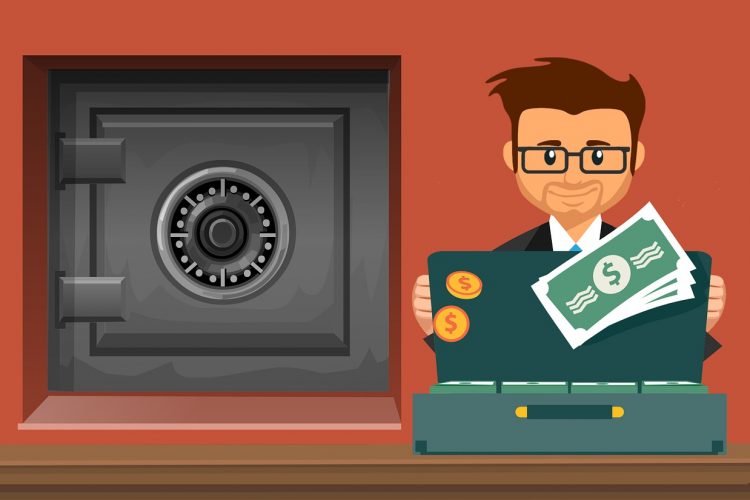Debt Security:
Debt Security is a financial instrument, which is issued by an institution or a company and sold to an investor. After that, it can be bought or sold between two individual parties in the capital markets. It is an agreement between the two parties, issuer paying back the face value and interest until it reaches the maturity date. Government bonds, corporate bonds, certificates of deposit (CD), preferred stock are some of the classic examples of debt securities.
In the early and mid 20th century, the normal people (investor) bought these debt securities since they were less risky and provided reasonable yield. To be precise, people gave more importance to debt securities than equity securities like shares. Nowadays, mostly large institutions transact in debt securities. These are also known as Fixed-Income securities.
The anticipated repayment ability of the borrower (issuer) determines the interest rate (coupon rate) of the securities. Companies with average financial strength promise higher interest rates. The Government and Blue-chip corporations pay relatively low interest on their debt securities.
The monetary value of debt security trades is much higher than that of stocks. As large institutional investors and governments deal with these securities. Globally, the dollar value of traded bonds is 100 trillion dollars, whereas its 64 trillion dollars for shares.
Generally, fixed income securities like bonds are considered safe investments. They ensure the return of the principal amount along with the predetermined interest on the maturity date. The “AAA” or “A” rating is a high-quality rating for a low-risk bond, “A”- or “BBB” rating is given to a medium risk bond. The high-risk bonds are rated BB or lower.
Risky debt securities:
Till now, we have discussed basic information on conventional debt securities. If we choose to buy the bonds of good companies and governments, there is no need to worry. Even in crises, the bondholders receive their interest. Since bonds come under obligations, they have to be paid regardless of good or bad financial performance by issuers. It’s so far, so good.
The real problem arises with the introduction of riskier and controversial debt securities. Collateralized Debt Obligations (CDOs), Collateralized Loan Obligations (CLOs), Collateralized Mortgage Obligations (CMOs), Mortgage-Backed Securities, Death Bonds, Junk Bonds, are such risky and unconventional securities. Let us discuss one by one in detail.
Controversial debt securities:
Collateralized Debt Obligations or CDOs are debt securities that are backed by other debt instruments. They are bonds constructed on bonds. A financial institution pools borrower debt together divides it according to the risk associated. These pools of debt are called tranches. Institutions such as investment banks sell these tranches to investors.
Collateralized Loan Obligations or CLOs are similar to a CDO except for the corporate loans with low credit ratings being the underlying assets. The financial institution compiles the loan debt together and divide it based on risk as tranches, and sells those to investors.
Collateralized Mortgage Obligation or CMO is similar to CLO. It is entirely made on the pools of mortgages.
Mortgage-Backed Securities or MBS are debt securities backed by home mortgages. Usually, the offering institution collects a bundle of several mortgages with similar interest rates and sells them to investors.
Death Bonds are made from life insurance policies that are transferable. They are packed together and sold to investors. The investment bank pools several life policies together and sells them as bonds.
Catastrophe Bonds, also known as cat bonds, are debt securities convertible into casualty insurance policies for catastrophes such as earthquakes, pandemics, etc. The issuer gets paid in case of catastrophes.
Junk Bonds are similar to regular bonds, but the issuer of these bonds has a low credit rating. We know that companies with weak financial strength provide high-yield corporate bonds.
Outline:
I know, it’s confusing, especially for someone with a very faint knowledge of capital markets. I will make it easier.
First of all, debt security is similar to an agreement that a borrower and a lender make. It includes a promise to repay the principal along with interest by the maturity date. As long as you buy the bonds, CDs, preferred stock of issuer with good financial strength and fundamentals, there is nothing to worry about. Also, debt has to be paid back irrespective of the performance of the company or any issuer.
The tendency of the human mind is always towards the change. It is only because of our passion to develop and make newer innovations we have improved the quality of our life. Not all of our innovations are fruitful; some of them are devastating for mankind.
Collateralized Obligations such as CDOs, CLOs, CMOs, MBS, and other unconventional debt securities are not suitable for everyone in the markets. These unconventional securities involve the transfer of risk from the banks and insurance companies to a common investor. These controversial securities are destroyers of a common person’s wealth.
What you can do:
There are a plethora of instances where banks and large financial institutions defaulting because of unpaid debt or Non-Performing Assets (NPA).
In India, the total NPA of banks is over 10 lakh crore as of March 2018. If banks and major financial institutions are defaulting on their loans, how safe it is for a common investor to buy and hold such securities? Also, the national debt of many large economies is on the rise, the debt to GDP ratio is 61.8% for India and 106.7% for the US. With so much debt on the rise, who is going to pay all of that debt?
There is a very slender for a retail investor to buy these collateralized securities directly in the markets. Some mutual funds hedge funds invest in these securities. So when choosing a mutual fund or any scheme for investing, make sure to check their portfolio. It is better to back off from investment funds with these dubious securities as a large portion of assets. 2008 financial crisis was largely due to these kinds of controversial securities in the sub-prime mortgage market.
Note:
I provide the information and my views on the website only to educate people, new investors, and stock market enthusiasts on equity and other market investments. Please consult a SEBI registered financial advisor before making any investments in the stock or commodity markets. In case of any queries, you can contact me on Contact Form or email: admin@valueinvestingonline.in.




